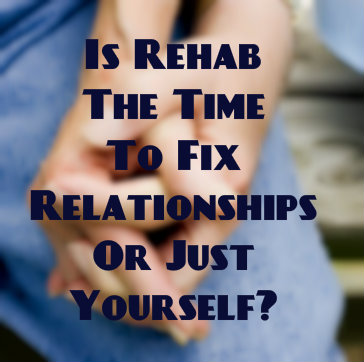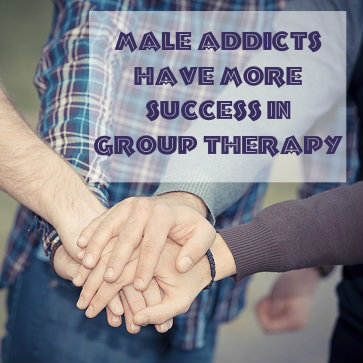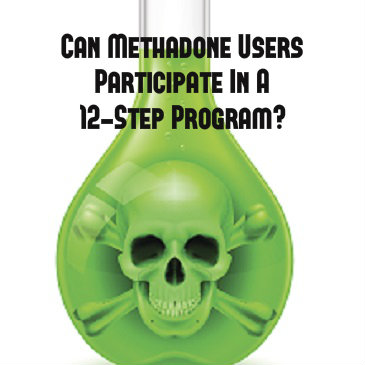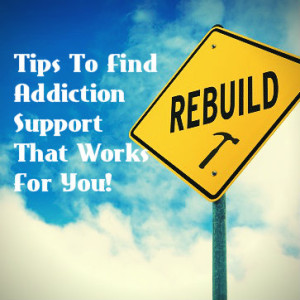22 Apr 2014
Repairing Broken Relationships While In Rehab
You have finally made the decision to get into rehab and get help for your addiction. Your habit has probably wreaked a lot of havoc in your life. You may have chronic health problems, your finances may be in the toilet, you may have lost your job, or you may have gotten into legal trouble. Perhaps the worst casualties of your addiction, however, are your relationships. Addicts often hurt the ones they love while focused solely on the needs dictated by their disease. Now that you’re going into rehab, should you work on those relationships or focus on your recovery alone?
What Are the Most Important Relationships In Rehab?
 As you enter rehab you will find that there are several relationships to cultivate. You will need to develop a working and trusting relationship with your counselor or therapist. This person will be instrumental in helping you to get better. You do need to work on this relationship, but remember that it is a professional one. If you struggle to trust this person, be honest about it. Your therapist will not take it personally if you want to request to work with someone else.
As you enter rehab you will find that there are several relationships to cultivate. You will need to develop a working and trusting relationship with your counselor or therapist. This person will be instrumental in helping you to get better. You do need to work on this relationship, but remember that it is a professional one. If you struggle to trust this person, be honest about it. Your therapist will not take it personally if you want to request to work with someone else.
You will also find that you will develop several relationships with peers while in rehab. These are crucial to your success. No one can go it alone, especially when trying to overcome addiction. Your peers have the unique perspective that you also have. They understand where you have been, where you’re going, and what your experience in rehab is like. While leaving romance out of the picture, which can complicate things, cultivate relationships with these people who will be able to support you during rehab and for years to come.
Can I Work On Repairing Relationships In Rehab?
In addition to the professional and peer relationships that you develop in rehab, you will also begin to forge a relationship with yourself. You will begin to learn more about your motivations for abusing substances, why you were susceptible to addiction, and how you can stay sober. This is essential to your recovery, and should be your main focus.
Although you are focusing on yourself, you may still be able to work on the relationships you damaged with your addiction. Consult your therapist to decide whether it is best for you to wait or to delve into that project while in rehab. If you both think you can handle getting to work on relationships, your therapist may want to set up family sessions. Together you can work toward regaining the trust of your loved ones and they can start to forgive you.
What If I Wait Until After Rehab To Fix Relationships?
If you and your therapist feel you need to focus solely on yourself during rehab, bring in your loved ones so that your therapist can explain the decision. They may feel hurt initially and wonder when it will be their turn. Your therapist can help them to understand the importance of devoting rehab time to your immediate needs.
Another option is for your loved ones to begin their own therapy sessions. The impacts of your addiction have probably hurt them, caused them to feel angry and used, or even traumatized them if abuse was involved. If your loved ones can begin to work with a therapist while you go through rehab, you will all be on the right track toward repairing your relationships together.
11 Apr 2014
How To Forgive Your Alcoholic Parent
Forgiveness, as the experts say, is a choice. If someone has wronged you, you cannot wait for forgiveness to appear. You must make a conscious decision to forgive. You also cannot wait for the person who wronged you to apologize. It may never happen. Forgiving someone is a personal choice and one that can give you many benefits. Researchers know that by actively forgiving, you can expect to experience less stress, better relationships, less depression, and even lower blood pressure and a lowered risk of substance abuse.
If the forgiveness you are considering means letting go of the harm and neglect you faced as a child because of a parent’s alcoholism, it will not be easy. Whether your alcoholic parent physically abused you, or simply was never there for you emotionally, you suffered greatly as a result. Forgiveness may be something you have considered, but are struggling to get through. With some understanding, compassion, and a suspension of resentment, you can forgive and move on with your life.
 The Harm Caused By An Alcoholic Parent
The Harm Caused By An Alcoholic Parent
The reason forgiving your mother or father is so difficult is that they caused so much damage in your life. When the children of alcoholics become adults they often experience their own struggles with substance abuse. You are also vulnerable to depression, you may have low self-esteem, and you probably struggle to maintain healthy relationships. If you were physically abused by your alcoholic parent, the repercussions may be more extreme.
Can You Learn To Understand An Alcoholic?
If you have managed to avoid having a substance abuse problem yourself, you may have a hard time understanding your alcoholic parent. However, your path to forgiveness may begin with compassion and understanding. Read up on the disease of alcoholism and try to learn why certain people are vulnerable to it and the impact it has. You may even want to talk to your mother or father about it. If he or she is willing to open up, you can learn just what the struggle has been like. Maybe your parent experienced abuse as a child. If you can understand the motivation behind your parent’s drinking, you may find the compassion to forgive.
Can You Let Go Of Resentments?
One of the biggest roadblocks to forgiveness is resentment. This ugly specter lives with you day in and day out. The more you think about how your alcoholic parent impacted your life in a negative way, the bigger this resentment becomes. It is a toxic feeling and will hinder you in everything you do. Even if you cannot yet forgive your parent, learn to let go of the resentment so that you can better function.
Remember The Good Times
Few alcoholic parents are so terrible that they never cared for their children at all. As you try to let go of resentment and attempt to cultivate compassion, think back to your childhood and try to remember the happy moments. Make a list of all the memories of a happy and caring parent. Remembering these moments and the feelings that accompanied them will help you to journey closer toward forgiveness.
Forgiveness is a choice, and it is a healthy one. Your life will only get better when you are able to forgive your parent. You will be able to rebuild a relationship and you will be able to let go of resentment. You will feel as if a weight has been lifted from your shoulders.
Find Out How Recovering Alcoholics Respond To Baclofen
As a rule, people affected by drug or alcohol addiction benefit from some sort of psychological or behavioral counseling that can help them successfully discontinue substance use and learn how to maintain substance abstinence over time. Some treatment programs feature individualized counseling sessions that only include a therapist and a single patient, while others feature group counseling sessions that include a therapist and multiple patients. In a study published in late 2013 in the Journal of Groups in Addiction & Recovery, researchers from two Canadian institutions compared the rate at which participants in individual counseling-oriented programs successfully complete addiction treatment to the rate at which participants in group counseling-oriented programs complete addiction treatment.
What Is Individual Counseling?
 Individual counseling-based programs for addiction treatment rely on a therapeutic relationship between a therapist and a single patient/client to achieve the treatment objectives common to all forms of substance-related counseling. Typically, individual therapy takes place in sessions that last 30 minutes to an hour; the specific techniques used in each session depend upon the therapist and the guiding principles of the program in which he or she is involved. In most cases, a recovering addict participates in a single one-on-one session with his or her therapist per week. However, some programs make provisions for as many as three or more sessions per week or for sessions that only occur every 30 days or more. Because of its relatively high cost, individual therapy is used less often than group therapy as a treatment for substance abuse or substance addiction.
Individual counseling-based programs for addiction treatment rely on a therapeutic relationship between a therapist and a single patient/client to achieve the treatment objectives common to all forms of substance-related counseling. Typically, individual therapy takes place in sessions that last 30 minutes to an hour; the specific techniques used in each session depend upon the therapist and the guiding principles of the program in which he or she is involved. In most cases, a recovering addict participates in a single one-on-one session with his or her therapist per week. However, some programs make provisions for as many as three or more sessions per week or for sessions that only occur every 30 days or more. Because of its relatively high cost, individual therapy is used less often than group therapy as a treatment for substance abuse or substance addiction.
What Is Group Counseling?
Group counseling-based programs for addiction treatment rely on the natural human dynamic of group interaction to achieve typical goals such as regular attendance at counseling sessions, avoidance of a relapse back into substance use and the establishment of a solid foundation for ongoing substance abstinence. Depending on the program in question, group therapy can place a particular emphasis on any one of a number of recovery-related issues also commonly addressed in individual counseling-based programs. These issues include educating participants about various aspects of abuse and addiction, helping participants understand their underlying psychological/emotional motivations for substance use and helping participants establish mental and behavioral skills that can form the basis for a substance-free daily routine. Recovering addicts enrolled in group counseling-based programs may attend regular group sessions for as long as half a year to a year.
Comparing Completion Rates Of Both Types
In the study published in the Journal of Groups in Addiction & Recovery, researchers from Canada’s Western University and the Centre for Children & Families in the Justice System compared the rate of client/patient retention in individual therapy programs for substance abuse/addiction to the rate of client/patient retention in group therapy programs. They decided to undertake this work after finding out that the vast majority of voluntary enrollees at a Canadian agency for addiction treatment failed to complete their program participation.
The researchers concluded that the average recovering addict enrolled in a group therapy-based program is roughly 100 percent more likely to successfully complete his or her treatment than the average recovering addict enrolled in an individual therapy-based program. However, they also concluded that the majority of the difference in success rates between the two counseling approaches is gender-related. Broadly speaking, men participating in addiction recovery are more likely than women to drop out of any form of treatment. Still, men who participate in group therapy-based programs have a much higher treatment completion rate than men who participate in individual therapy-based programs. Conversely, the researchers found that women tend to complete individualized addiction therapy just as often as they complete group addiction therapy.
The conclusions made by the authors of the study published in the Journal of Groups in Addiction & Recovery indicate that doctors may need to take their patients’ gender into account when making recommendations for participation in either individual therapy or group therapy for addiction treatment. Further research will be needed to fully confirm the gender-related differences in the program completion rates among recovering addicts. While some programs rely only on individual therapy or group therapy, others combine the two approaches, largely because each approach typically produces some unique potential benefits for participants. This means that men in some programs who don’t respond well to individual therapy may still achieve their treatment objectives through regular attendance at any available group therapy sessions.
Read About How Drug Rehab Programs Rely On Science To Develop Effective Addiction Treatment Methods
24 Mar 2014
How Can You Forgive A Recovering Addict?
If you have suffered because of a loved one’s addiction, forgiveness may be difficult for you to give to that person. Many addicts in recovery apologize to those they have wronged. They do not expect or require forgiveness, but if you can find it in your heart to give it, forgiveness can be good for everyone. At a very minimum, forgiveness will allow you to reestablish a relationship. If you can’t forgive your loved one, you can no longer have a real relationship. Consider the benefits and then work toward real forgiveness.
What Does It Mean To Forgive An Addict?
 Before giving this gift of forgiveness, both to yourself and to the recovering addict, make sure you understand what it means. Forgiveness is a conscious decision. You must decide to give it and then live with it. Do not do it until you are ready.
Before giving this gift of forgiveness, both to yourself and to the recovering addict, make sure you understand what it means. Forgiveness is a conscious decision. You must decide to give it and then live with it. Do not do it until you are ready.
What forgiveness does not mean is forgetting what your loved one did to you. It does not mean that you are letting him off the hook or that there are no consequences because of his actions. It does not mean that you have to stop being angry. Forgiveness does not even mean that you have to reconcile with the person who hurt you.
How Can I Forgive?
Keep in mind that forgiveness is a journey. If you are just starting to think about forgiving a recovering addict, you may still be days, weeks, or months away from being ready to be in that state of mind. Take your time, but do think about forgiveness and what it would mean to you and your loved one. Make this process your own. Don’t wait for your loved one to apologize because it may never happen. Forgiveness is your choice.
Learn about addiction in an effort to get to the point at which you can forgive. Not being an addict yourself, it can be almost impossible to understand what your loved one went through. If you still struggle to find forgiveness in your heart, consider seeing a therapist or counselor. A professional can help you work through all the painful and confusing emotions you are feeling.
How Can Forgiveness Help?
Forgiveness is something you should largely do for yourself, but it can also help your loved one. He has been carrying around shame and guilt to an extent that you may never realize. Whether he has vocalized this to you yet or not, he is feeling bad. Your forgiveness would probably mean the world to him and studies have found that being forgiven is a powerful tool to help addicts stay sober.
By forgiving your loved one, you also give yourself an important gift. Research shows that people who forgive others often are less likely to be depressed, have higher self-esteem, have more friends and better marriages, have lower blood pressure, have a stronger immune system, and are less likely to have heart disease. Not only is forgiveness good for your mental health, it also impacts your physical wellbeing. Holding a grudge has a powerful effect on your psyche and your physical body.
You owe it to yourself at the least to find the room in your heart for forgiveness. Once you do it you will find that a weight has been lifted. You will feel lighter and freer without the burden of holding on to negative feelings. Take your time, but do try to get to that place. You won’t regret it.
Read More On How to Support A Recovering Addict After Everything
Methadone is an opioid medication sometimes used to treat people addicted to heroin or other powerful opioid drugs. Affected individuals commonly receive this medication on an ongoing basis rather than for a limited period of time. This pattern of usage can potentially create conflicts with participation in self-help support groups called 12-step groups, which typically place a high emphasis on complete drug and alcohol abstinence. In a study published in late 2013 in the Journal of Groups in Addiction & Recovery, researchers from three U.S. institutions sought to determine how many people receiving methadone also participate in a 12-step program.
What Is Methadone?
 While methadone is an opioid substance, it has somewhat different properties than heroin or other opioid drugs of abuse. Those drugs are characterized by their ability to produce the rapid onset of a highly pleasurable state. Methadone, on the other hand, produces effects that build more slowly and result in a relatively low level of euphoric sensation. Doctors can exploit these properties and use methadone as a substitute for opioid drugs of abuse. Although an addict using methadone still has opioids in his or her bloodstream, he or she typically experiences a substantial reduction in the risk of drug-related harm. Although some addicted individuals receive only short-term methadone treatment, others participate in methadone maintenance treatment, an ongoing approach that uses methadone as an opioid drug replacement for extended periods of time.
While methadone is an opioid substance, it has somewhat different properties than heroin or other opioid drugs of abuse. Those drugs are characterized by their ability to produce the rapid onset of a highly pleasurable state. Methadone, on the other hand, produces effects that build more slowly and result in a relatively low level of euphoric sensation. Doctors can exploit these properties and use methadone as a substitute for opioid drugs of abuse. Although an addict using methadone still has opioids in his or her bloodstream, he or she typically experiences a substantial reduction in the risk of drug-related harm. Although some addicted individuals receive only short-term methadone treatment, others participate in methadone maintenance treatment, an ongoing approach that uses methadone as an opioid drug replacement for extended periods of time.
What Is A 12-Step Program?
Twelve-step programs get their name because they emphasize participation in a series of 12 consecutive “steps” as the key to overcoming a reliance on drugs or alcohol (or certain harmful behaviors). The specific steps undertaken vary from program to program; however, common features of most programs include admitting powerlessness over one’s harm-producing behavior, seeking some sort of spiritual assistance to cope with harm-producing behavior, assuming moral accountability for one’s harmful actions and making amends to people who suffer from one’s harmful actions.
As a rule, 12-step programs emphasize the need to stay substance-free. In order to help group members achieve this goal, they employ a sponsor system that relies on longer-term members to mentor shorter-term members and provide the encouragement needed to remain abstinent from substance use. Two of the most well known 12-step groups in the U.S. are Alcoholics Anonymous and Narcotics Anonymous.
How Many Methadone Users Participate In A 12-Step Program?
In the study published in the Journal of Groups in Addiction & Recovery, researchers from the Institute for Behavior and Health, Chestnut Health Systems and Partners in Drug Abuse Rehabilitation and Counseling investigated the degree of overlap between participation in methadone maintenance treatment and participation in a 12-step program. They conducted this investigation with the help of 322 adults currently participating in methadone programs. These adults were asked to submit information on their involvement in Alcoholics Anonymous and Narcotics Anonymous during the year prior to the start of the study. The researchers also asked them to detail their level of adherence to these 12-step groups’ program requirements.
The researchers found that fully two-thirds of the adults participating in methadone maintenance treatment also had a history of recent involvement with Alcoholics Anonymous, Narcotics Anonymous or both 12-step groups. Seventy-two percent of these individuals reported receiving important benefits from their involvement in Alcoholics Anonymous, while 77 percent reported receiving benefits from their involvement in Narcotics Anonymous.
Does A 12-Step Program Work For Methadone Users? And Why Are They Hiding Their Methadone Use?
However, the researchers concluded that, compared with 12-step members not using methadone, the methadone patients had a substantially smaller overall level of program involvement. For example, only half of the methadone-using members regularly attended meetings with a single group of 12-step practitioners. Only a quarter of the methadone-using members worked with a sponsor, and only 13 percent of these members ended up acting as sponsors for others. In addition, only 21 percent of the methadone users vigorously pursued the completion of the 12 steps that form the basis of 12-step programs.
The authors of the study published in the Journal of Groups in Addiction & Recovery found that roughly a quarter of all the methadone users who attended Alcoholics Anonymous or Narcotics Anonymous felt that their status as methadone recipients negatively affected their 12-step experiences. In addition, roughly one-third of all the methadone users actively hid their participation in methadone maintenance treatment from their 12-step peers. Altogether, the study’s findings indicate that methadone users who participate in 12-step programs experience widely varying outcomes from that participation.
Read About The Facts And Myths Of Methadone
Being an addict takes a serious toll on your body. The longer you gave in to your cravings for drugs or alcohol, or both, the more damage you have done. The good news is that once you are in recovery, you can begin to reverse that damage and restore your health to a significant degree. To make the most of your recovery, to feel better and to avoid relapsing, turn to a healthful diet and lifestyle.
How Does Substance Abuse Impact Health?
How your addiction has affected your body depends on the drugs that you abused. In general, however, substance abuse impacts your health in two ways: the drug itself causes harm and your lifestyle likely causes you to neglect nutrition.
 Opiates can cause a lot of gastrointestinal symptoms like constipation, nausea, and vomiting. Alcohol causes deficiencies in certain vitamins, which can lead to anemia and damage to your nervous system. Alcohol can also cause high blood pressure, diabetes, and liver damage. Meth, cocaine, and crack all cause weight loss and malnutrition. They also cause dehydration, insomnia, and memory problems. Marijuana use can cause you to overeat, and as a result, to gain excess weight.
Opiates can cause a lot of gastrointestinal symptoms like constipation, nausea, and vomiting. Alcohol causes deficiencies in certain vitamins, which can lead to anemia and damage to your nervous system. Alcohol can also cause high blood pressure, diabetes, and liver damage. Meth, cocaine, and crack all cause weight loss and malnutrition. They also cause dehydration, insomnia, and memory problems. Marijuana use can cause you to overeat, and as a result, to gain excess weight.
How Can Diet Aide In Recovery?
When you first detox or start to get help for your addiction, diet and nutrition may be the furthest things from your mind. Your main goal is to stop using. Once you feel more secure in your recover, however, it’s time to think about repairing your body. When you feel better because of good nutrition, you will be less likely to relapse. There are a few general guidelines for the most important components of a complete and healthful diet:
- Limit fat intake – A high-diet is unhealthy and can lead to weight gain. Stick to healthy fats, such as those that come from plant sources. Olive oil, avocados, and coconut are all good sources to include as well as limited amounts of animal fats.
- Get plenty of protein – Protein is essential for energy and for building muscle. It is essential to get enough protein in your diet to start repairing some of the damage caused by drugs and alcohol. Include lean protein in your daily diet (e.g., fish, poultry, eggs, nuts and beans).
- Consume whole grains -Whole grains are an important energy source and are much better for you than refined grains. They provide lasting energy, a lot of fiber, and vitamins and minerals. Look for whole grain breads and pastas as well as oatmeal and brown rice.
- Include fruits and vegetables – Produce is an important source of nutrients. Eat a variety of fresh vegetables and fruits. Where fresh produce is limited or too expensive, go with frozen over canned.
- Consider vitamin supplements – Addicts are often deficient in B vitamins in particular, so consider getting a high-quality B complex supplement to take each day.
What To Eliminate From Your Diet While In Recovery
In addition to including healthful foods in your diet, it is important to eliminate certain things. Avoid sugar, as it can cause cravings and can become a substitute addiction. Natural sugar from fruits will be enough to meet your nutritional needs. Also avoid caffeine for similar reasons. Stay away from processed foods as much as possible; they can place extra stress on your liver. Keep your diet as full of natural, whole foods as possible for maximum benefit.
Remember as you work through your recovery that the greater your overall health, the greater your odds of avoiding relapse. A healthful diet will help you to feel better and will motivate you to keep making positive changes in your life. If you are unsure of how to best improve your diet, see your doctor for guidance or a referral to a professional nutritionist.
Read More About Diet And Exercise Aiding In Recovery
Establishing a healthy romantic relationship is not always easy, but dating a former drug addict or alcoholic can present its own unique challenges. If you have met someone and you feel a connection you would like to explore, but have just found out he is in recovery, you may be wondering if you should go forward. If you do continue the relationship, you may wonder how it will work and what you may be in for. Finding out that someone you like is a recovering addict does not need to be a roadblock, but you should be prepared to meet the challenge.
Do Recovering Addicts Need Extra Support?
 Yes, a recovering addict does need support, more than you might expect. To fully understand what this person is going through, and has been through, you should read up on addiction. You should know that addiction is a chronic and lifelong illness. Even if he has been sober for years, he is still in recovery and he still feels the temptation to use again. This means that he needs support from the loved ones in his life. Support and sensitivity from you and from others is what keeps him strong and sober.
Yes, a recovering addict does need support, more than you might expect. To fully understand what this person is going through, and has been through, you should read up on addiction. You should know that addiction is a chronic and lifelong illness. Even if he has been sober for years, he is still in recovery and he still feels the temptation to use again. This means that he needs support from the loved ones in his life. Support and sensitivity from you and from others is what keeps him strong and sober.
Can I Drink Around A Recovering Addict?
A relationship with a recovering addict carries with it some unique characteristics. You may not be able to drink around him, or even engage in other activities like going to parties where drinking or drug use is present. Whether or not you can drink in front of him depends on his individual needs, but it is something you need to consider. You need to be sensitive to his weaknesses and how your actions impact him.
Will A Recovering Addict Relapse?
As you learn more about addiction, you will learn that like other chronic illnesses it comes with the likelihood of relapse. Roughly half of all addicts in recovery will relapse at least once and use again. If you are considering dating a recovering addict, this is something to consider. Will you be able to cope if he does relapse? How will you be prepared to handle the situation? If you are completely unfamiliar with addiction and have no experience with addicts, you may want to attend a few support group meetings or see a drug counselor to learn what to expect and how to help during a relapse.
Can I Trust A Recovering Addict?
One of the biggest issues in relationships with addicts, romantic or otherwise, is trust. Loved ones who have stood by an addict have experienced great breaches of their trust. Whether you will be able to trust an addict in recovery is up to you. Some people will feel they can never trust a former addict, while others may be able to suspend their doubts. The decision is personal and entirely yours to make.
Dating someone in recovery is different from dating someone who has never been an addict. There are downsides and challenges, but there are also some unexpected bonuses. Addicts who have been through therapy and treatment may have a better understanding of how to relate to others, how to communicate and how to develop and maintain healthy relationships. While you may question your ability to trust and worry about relapses, you may just find yourself dating someone who can bring much more to the table. He may be more sensitive, communicative and aware of your needs than anyone else you have dated.
Read More About If You Are Enabling The Addict In Your Life?
Getting professional support and care for your addiction is an essential element in your journey toward sobriety. Addiction, whether to alcohol or drugs, is a disease. It is a chronic disease that requires treatment. You need to learn skills that you will use for the rest of your life to avoid using again. Because professional care is so important to recovery, it is a good idea to spend some time finding the facilities and the caregivers that will best match your needs. No single approach or treatment philosophy works for everyone. You need to find what works for you by doing some research and asking questions.
Will Your Family Support You In Recovery?
 Besides professional care, having the love and support of family and friends is one of the most important tools for recovery. If you have no one you can rely upon for support, you may benefit from a residential rehab facility. This is the type of place in which you stay overnight for a week, a few weeks, or even a month. The support system is built in to the program and includes your fellow patients, counselors, doctors, nurses and staff members.
Besides professional care, having the love and support of family and friends is one of the most important tools for recovery. If you have no one you can rely upon for support, you may benefit from a residential rehab facility. This is the type of place in which you stay overnight for a week, a few weeks, or even a month. The support system is built in to the program and includes your fellow patients, counselors, doctors, nurses and staff members.
Do You Need Flexibility In Your Care?
If your family is available and actively willing to support you in your recovery, you could consider an outpatient program. Another reason to consider outpatient care is if you have other responsibilities that you cannot neglect for the weeks or months needed for residential care. Outpatient programs are designed to have flexible schedules so that you can get the support you need for addiction while still going to work during the day, keeping up with your classes at night, and meeting your family obligations on a day-to-day basis.
Will Religion Help You Stay Clean?
If you have a strong faith, you can find rehab facilities and treatment programs that include a religious element. Many people find that their beliefs are what help them the most when it comes to getting sober and staying clean. If this sounds like you, look for a facility or a program that is faith-based.
Do You Have Concerns About Mental Health?
It is not uncommon for addicts to also struggle with one or more mental health issues. If you have been diagnosed with depression, anxiety disorder, schizophrenia, bipolar disorder or any other mental illness, you need to receive care for your illness as well as for your addiction. The two are most likely intertwined. Make sure you look for a facility that recognizes the importance of a dual diagnosis. It is essential that you work with caregivers who are experienced at working with mental health and addiction together in order to get the best treatment.
How Will You Pay For Addiction Treatment?
Finally, make sure you select a treatment plan that you can afford to finish. There is no point in starting a treatment program only to quit early due to financial stress. If you have health insurance, find out what facilities and programs are covered. If you will be paying out of pocket, determine how much you can afford to spend and use that as part of your criteria for selection.
Finding the right treatment for addiction is important to your success. Treatment programs are not one-size-fits-all and to give yourself the best chance, you really need to shop around for the program and the professionals that will meet your needs. The Substance Abuse and Mental Health Services Administration is a good place to start for information. Take the time to read up and to make a wise choice.
Read More About Why You Need Fellowship To Recover From Addiction


